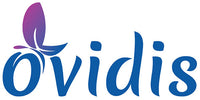Alzheimer’s disease at the center of Ovidis’ mission
This year, the Alzheimer Disease International (ADI) organization marks the tenth anniversary of World Alzheimer’s month on a global scale. This international federation is that of Alzheimer’s and dementia associations around the world and they are also in official relations with the World Health Organisation (WHO). Their vision aims to reduce risk, ensure timely diagnosis, care and inclusion for today and find a cure for the future. The 2021 edition focuses on the warning signs of this form of dementia and invites people to seek out information, advice and support with their local organizations.
Some facts about Alzheimer in Canada
- Alzheimer is the most common form of dementia
- 70% of cases affect people aged 60 and over
- 65% of diagnostics affect women aged 65 and over
- More than 565,000 Canadians suffer from Alzheimer’s and it is estimated that this number will rise to 912,000 by 2030
- 1 out of 5 people looks after, or has looked after, a loved one that suffers from Alzheimer’s.
Alzheimer: warning signs and stages
The areas of the brain that controls our thoughts, memory and language are affected and cause the disease to usually start with mild memory loss and progresses until people suffering from it are unable to have a conversation and respond to stimuli that are in their environment.
Common warning signs include:
- Memory loss that affects daily life; we sometimes repeat the same things, or the same questions, we get lost or feel disoriented in places we know
- Difficulty carrying out daily tasks such as paying the bills, taking the bus
- Difficulty finding things, remembering what we recently did
- Changes in mood, personality and behaviour
Alzheimer’s disease has 7 stages that resume themselves to 3 larger stages; early, mild or moderate, and light or severe. When broken down, the 7 stages of Alzheimer’s disease are:
- Stage 1: Before Symptoms Appear.
- Stage 2: Basic Forgetfulness.
- Stage 3: Noticeable Memory Difficulties.
- Stage 4: More Than Memory Loss – it is usually as of this stage that the person affected by Alzheimer’s disease needs greater care and assistance
- Stage 5: Decreased Independence.
- Stage 6: Severe Symptoms.
- Stage 7: Lack of Physical Control.
The best thing to do if you think a loved one has Alzheimer’s disease is to see a doctor who will help determine if the symptoms you are seeing are indeed related to those of Alzheimer’s disease. If the diagnosis is positive, the doctor will be able to guide you towards the appropriate care for this condition. The Alzheimer Society of Canada’s website www.alzheimer.ca is also a great place to learn more about the disease and to find groups and resources in your area where you can find help, respite and comfort.
Ovidis and Alzheimer’s disease
Local business Ovidis was founded by 4 women who accompanied a loved one who was becoming increasingly dependant due to a loss of autonomy brought on by Alzheimer’s disease. Their sensitivity towards the matter is unique as they all tried to dress their mother, and other members of their family, in clothes adapted to their needs and their personalities.
Alzheimers clothing
As such, they created clothes that are discreetly adapted to simplify caregiver assisted dressing that have a transformative impact on a loved one’s mood, mental health and self esteem because they respect their personality. Ovidis adaptive clothes are made of soft and resilient fabrics that are easy to care for.
Anti-strip clothing
They are designed to ensure anyone wearing them feels great and comfortable, day and night. Adaptive clothing for dementia patients can stop them from undressing at inopportune times : Anti-strip clothing



Although research, discoveries, and advances are constantly being made when it comes to Alzheimer’s disease, there is still a lot of work to be done to improve the daily lives of those suffering from this disease including, possibly one day, finding the cure that will eradicate the devastating effects of this disease on the brain. In the meantime, scientists from all over the world continue their research and local organizations continue to support those suffering from the disease as well as those who are close to them who care for them to make their daily lives a little easier.
Do you know Eugeria?
The mission of this dynamic team is to improve the quality of life of seniors and people with Alzheimer's or apparent illnesses and to lighten the burden on family caregivers.
Have you heard of Eugeria?
The mission of this motivated team is to improve the quality of life of people living with dementia, and lighten the day-to-day while caring for someone with Alzheimer's.
Eugeria is:
- A simple to use website, full with innovative products to improve everyday life
- A product testing methodology unique in the market, to ensure quality of products and efficiency
- A customer service team that have both an empathy driven approach, while combining a solution oriented mindset. Our team is trained to advise you on various stages of dementia.
Visit their website eugeria.ca/en to find out more!


